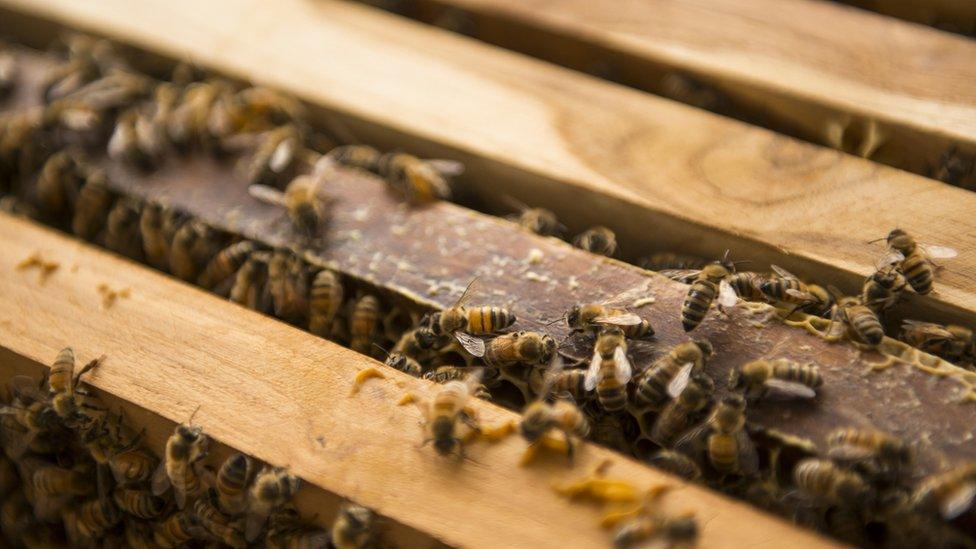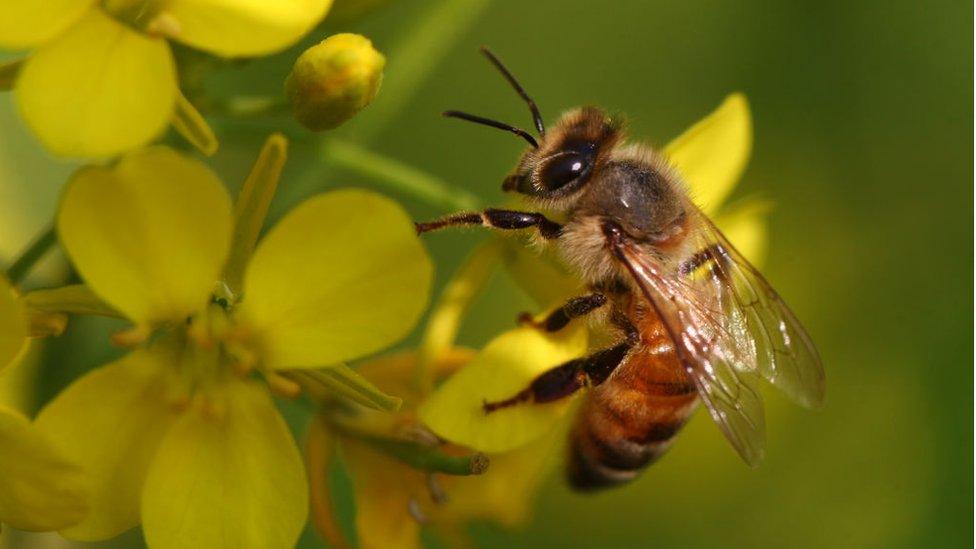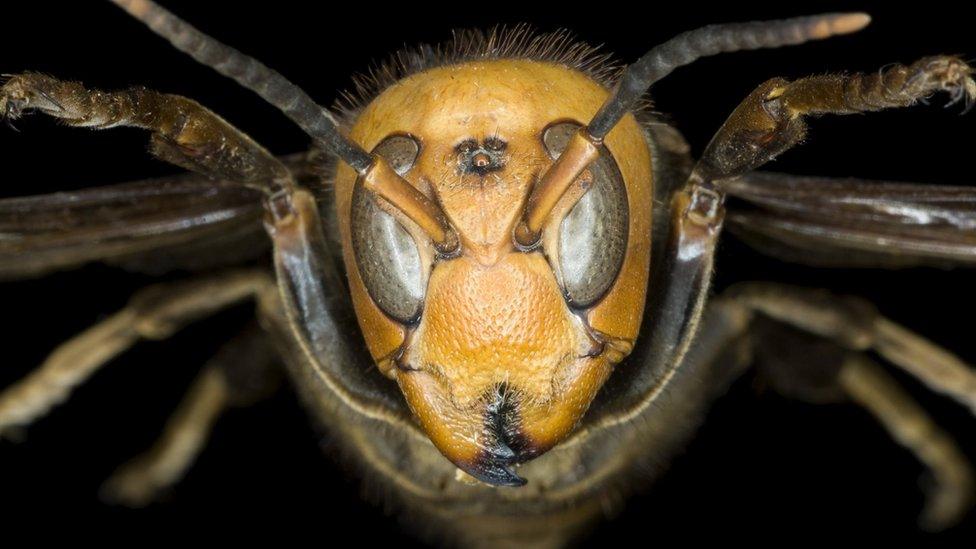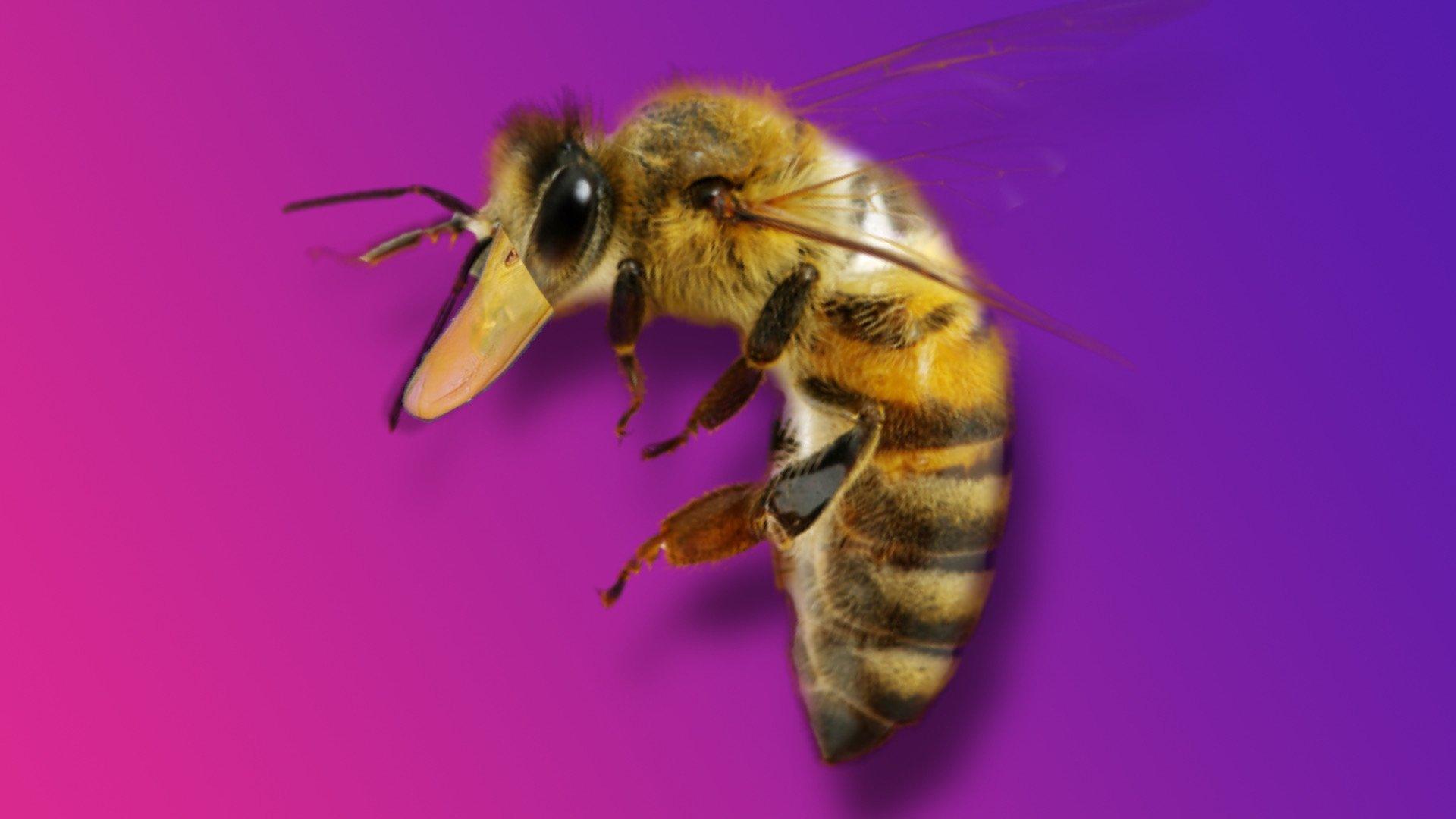Why Asian honeybees are using poo to protect their hives
- Published
- comments

The honeybee, crucial for life on Earth, good for the environment, they help to produce food, they're also pretty cute and in Asia they spread poo on their hives to protect themselves.
We're sorry if you're eating... But you read correctly, scientists have revealed that honeybees in Vietnam collect and paste chicken poo, buffalo dung and even human urine on to their nests to defend themselves from giant killer hornets.
Hornets are big wasps that attack the honeybees and steal their young to feed to their own offspring. Giant Asian hornets are up to five times bigger than honeybees and can destroy a colony in a matter of hours.
The bees use a range of strategies to stop attacks from predators. As well as the poo shield, they have been seen physically shielding their colonies through body shaking together in groups, hissing, and covering the hornets until they overheat.
Dr Heather Mattila a biology professor at Wellesley College in the US state of Massachusetts, said the poo adds to "an already impressive list of defences they have to prevent these hornets from destroying their colonies".
WATCH: Check out the noises these bees make!
However, the poo tactic has surprised scientists because bees are known for being hygienic to prevent disease in their hives.
And, unlike when they collect pollen using their back legs, these bees carry the bits of poo back to their homes using their mouth. Nice.
The scientists behind the study say they didn't believe the bees could be using poo, but began their research when a Vietnamese beekeeper said they had seen mysterious dark spots at hive entrances.
"We thought that'd be crazy because bees don't collect dung," said Dr Mattila.

Honeybee populations have been declining sharply around the world
But the study confirmed that the poo was indeed a defence being used by the bees. After contacting other bee experts, the researchers learned that the behaviour is widespread throughout Vietnam and other parts of Asia including China, Thailand, Bhutan, and Nepal.
Dr Mattila says she was "shocked" by the findings because "bees have such a good reputation for being clean. They have hot, wet, permanent homes that are a great place for disease to grow and are filled with babies and food."
The scientists found that the hornets were less likely to launch mass attacks on hives dotted with poo, and unsurprisingly spent 94% less time chewing at the entrances to hives if they did land.
Researchers are not sure why the dung acts as a defence against the hornets, but other insects such as the caterpillar of the tobacco hornworm moth are known to cover themselves in poo to put off predators too.
Why are bees so important?
However, Bees in Europe and North America have not evolved the same defences yet, making them "sitting ducks", the scientists said, meaning they're vulnerable to attack,.
Asian hornets have recently been detected in North America where they have been dubbed "murder hornets" for the threat they pose to local honeybees and ecosystems. Their sting can also be dangerous to humans. Meanwhile giant hornets are destroyed if they are found in the UK because of the damage they can cause.
"They just don't have the exposure to these hornet species and, as a result, they are sitting ducks," said Dr Mattila.
Honeybees are in decline worldwide and play a critical role in pollinating the plants that we as humans depend on to eat.
- Published18 June 2019

- Published16 June 2020

